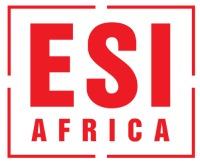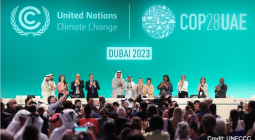SANEDI seeks experts to drive public sector energy efficiency
The objective of the EEPBIP, is to reduce GHG emissions in South Africa by catalysing an energy efficiency transformation within the public-sector environment
The South African National Energy Development Institute (SANEDI) invites suitably qualified and experienced service to provide tailored technical, financial, legal, contracts management and regulatory support to 12 public sector institutions for the development and implementation of energy efficiency projects under the Energy Performance Contracting (EnPC) model.
South Africa’s Greenhouse Gas (GHG) emissions are high, in both absolute and per capita terms; mainly due to a primarily coal-based electricity supply industry, combined with a prevalent inefficient use of energy across many sectors. Public infrastructure, such as buildings, street lighting and water/ waste-water treatment plants, owned by and/or managed by municipalities, provinces, national government, and State-Owned Entities (SOEs), contribute to the country’s GHG emissions.
Despite potential financial and energy savings, and emission reductions that could be achieved through demand-side energy efficiency interventions, uptake and implementation to date has been limited. This is due to a range of factors including: capacity and resource constraints, awareness of opportunities, comprehensive and accurate data on existing energy use, and access to finance.
To address these challenges and to fast track the large-scale roll out of energy efficiency across public institutions, the Department of Electricity and Energy (DEE) have developed the Energy Efficiency in Public Buildings and Infrastructure Programme (EEPBIP) in collaboration with SANEDI, the National Business Initiative (NBI) and the Deutsche Gesellschaft für Internationale Zusammenarbeit (GIZ).
The objective of the EEPBIP, which commenced in 2019, is to reduce GHG emissions in South Africa by catalysing an energy efficiency transformation within the public-sector environment. This will be achieved through the provision of appropriate technical and financial support, and a programmatic approach to identifying, developing, financing, and implementing energy efficiency interventions in a consistent and replicable manner.
The EEPBIP aims to build on existing public sector programmes, including the municipal Energy Efficiency and Demand Side Management Programme (EEDSM), in addition to the Energy Performance Certificate regulations for buildings.
The latent energy efficiency investment potential of the public sector can support a rapid and sustainable growth of the local Energy Service Company (ESCO) market and stimulate energy efficiency implementation across all sectors of society.
Energy Efficiency projects developed through the EEPBIP, will be tendered by public sector entities, and implemented by Energy Service Companies (ESCO’s) through an Energy Performance Contracting (EnPC) model. The intention is to establish Shared Savings Contracts, with the ESCO providing the required debt and equity and recouping their investment and returns through electricity cost savings.
The three phases of proposed activities will require a range of skills and expertise, including legal and contract management, technical, financial, and local economic development. The level of support required for the different phases of the procurement process will be dependent on the specific needs of the institutions and approvals for the phase of activities.
Tender submission
Submissions / Bid Documents may be returned to the CLIENT by means of Electronic Submissions via E-Mail. The Submission E-Mail address designated is
0725.procurement@sanedi.org.za
Tender documents can be obtained from SANEDI website.
Cover photo: Pexels



